Afraid of Toxic Chemicals in Your Food? Read this! Artificial Sweeteners and Processed Foods
Share
Why Chemophobia is Straight-Up Ridiculous (and Kind of Dangerous)
Let’s talk about chemophobia—a fancy term for an irrational fear of chemicals. You know, the type of fear that makes people freak out over words like “ascorbic acid” on a label, even though it’s just vitamin C. This mindset, while understandable in a world where we’re constantly bombarded with health and wellness marketing, is not only unnecessary but downright silly.
And yes, I’m calling it out because it’s time to stop being scared of things we don’t understand. Especially if you’re vegan, plant-based, or into health and fitness like powerlifting (💪), it’s crucial to embrace science, not run away from it.
Everything is Chemicals (Even You!)
Here’s the kicker: you are made of chemicals. Your morning coffee? Chemicals. The water you chug after a sweaty deadlift session? Chemicals. The air you breathe in between sets? Yup, chemicals.
Chemophobia happens because people conflate the word “chemical” with something harmful or artificial. But in reality, “chemical” is just a broad term for any substance made of matter. Water is dihydrogen monoxide. Table salt is sodium chloride. Fancy words don’t make them evil—they just make them sound like the nerds they are.
"Chemical-Free" is the Biggest Lie Ever
I know you’ve seen it: products with labels screaming “100% natural” or “chemical-free” in giant, eco-friendly fonts. Here’s the tea: nothing is chemical-free. That “natural” moisturizer? Full of chemicals. That organic protein powder? You guessed it—chemicals.
Brands slap these labels on products because they know chemophobia sells. If it sounds scary and unnatural, people avoid it. If it’s marketed as pure and wholesome, people pay a premium for it. But in truth, natural doesn’t always mean good, and synthetic doesn’t always mean bad.
Nature Can Be Just as Toxic
Let’s break this myth: just because something comes from nature doesn’t mean it’s harmless. Cyanide is natural—it’s in apple seeds and bitter almonds. Poison ivy? Natural. Would you rub that all over your face? Didn’t think so.
On the flip side, synthetic chemicals can save lives. Aspirin was originally derived from willow bark, but now we make it synthetically. Does that make it bad? Nope—it makes it consistent, effective, and available for everyone.
Science is Your Friend, Not the Villain
The fear of chemicals often comes from a lack of understanding. People see a long, scientific-sounding name and assume it’s something cooked up in a sinister lab to poison them. But those complex names? They’re just how scientists precisely describe substances.
Take tocopherol acetate. Sounds terrifying, right? It’s just vitamin E, a nutrient that’s good for your skin and overall health. Or citric acid, which is in lemons. Does that mean lemonade is a toxic potion? Of course not.
By rejecting all “chemicals,” you’re not just being illogical—you’re potentially cutting yourself off from things that could benefit you.
Why Chemophobia is Dangerous
Here’s where it gets serious: chemophobia isn’t just silly; it can actually harm you.
- Fear-based decisions: Avoiding lifesaving medicines or vaccines because their ingredients sound “chemical.”
- Unnecessary stress: Constantly worrying about every ingredient list, even when there’s no evidence of harm.
- Wasted money: Falling for expensive “natural” products that aren’t better or safer than their synthetic counterparts.
For athletes like powerlifters, this mindset can be especially harmful. Imagine rejecting a perfectly good plant-based protein powder because it contains “processed” ingredients. You could miss out on gains because you bought into fear instead of facts.
How to Overcome Chemophobia
If you’re guilty of chemophobia, don’t worry—it’s fixable!
- Educate Yourself: Learn what those scary-sounding names actually mean. Knowledge is power.
- Question Marketing Hype: Be skeptical of buzzwords like “toxin-free” or “chemical-free.”
- Trust Science, Not Fear: Look at peer-reviewed studies, not Instagram posts from “wellness gurus.”
- Balance Over Perfection: It’s okay to prefer natural products, but don’t demonize synthetic ones without reason.
The Bottom Line
Chemophobia is just fear of the unknown, dressed up as health-consciousness. But here’s the truth: chemicals are everywhere, and most of them are not out to get you. Being vegan or into fitness doesn’t mean you need to fall for pseudoscience or fear-mongering.
Instead of fearing chemicals, embrace them. Understand them. And next time someone panics about “toxic” ingredients, hit them with some facts (and maybe a sassy smile). Remember, a balanced, informed approach is always stronger than fear—just like your deadlift. 💥
Хемофобия — это иррациональный страх или предвзятое отношение к химическим веществам, особенно тем, которые производятся искусственным путем или используются в промышленности. Люди с хемофобией часто ассоциируют слово "химия" исключительно с чем-то вредным, токсичным или опасным, хотя все, что нас окружает (включая воду, воздух и наше тело), состоит из химических соединений.
Примеры проявлений хемофобии:
- Избегание продуктов с "химическими" названиями в составе, даже если это безопасные вещества (например, аскорбиновая кислота — это витамин C).
- Предпочтение продуктов с пометками "без химии" или "100% натуральное", что часто используется как маркетинговый трюк.
- Недоверие к любой косметике, лекарствам или бытовой химии из-за их "искусственного происхождения".
Научный подход помогает развеять мифы, связанные с хемофобией. Главное — понимать, что "натуральное" не всегда безопасно, а "синтетическое" — не всегда вредно. Например, цианид содержится в косточках некоторых фруктов, но это не делает их полезными.
